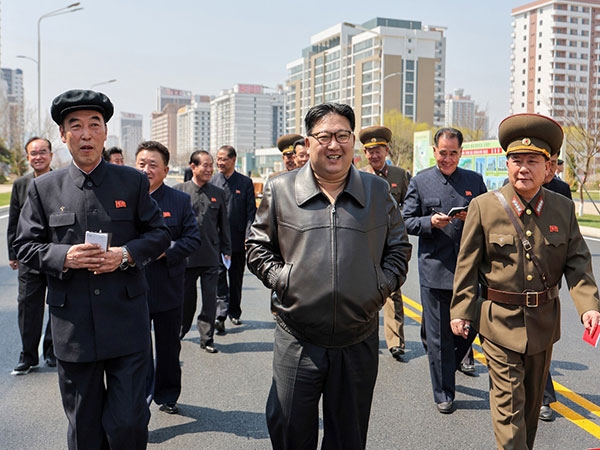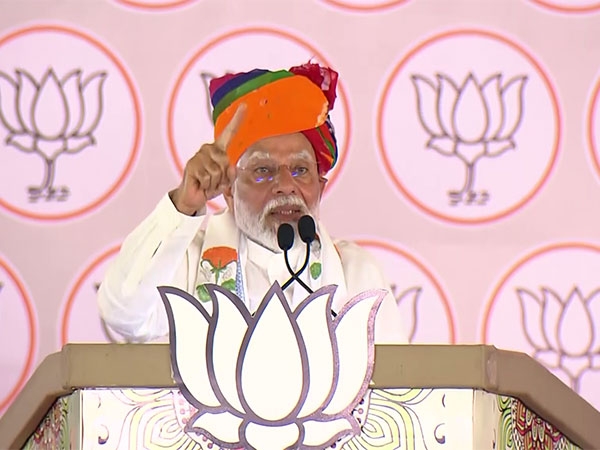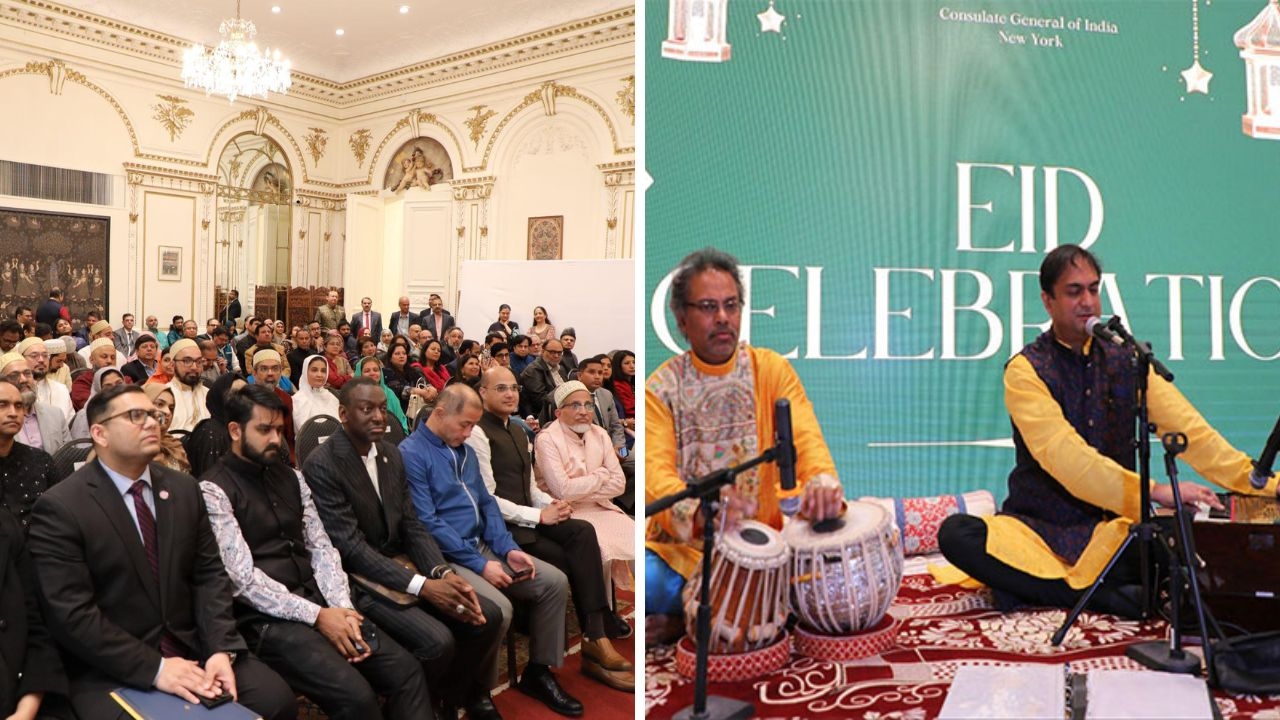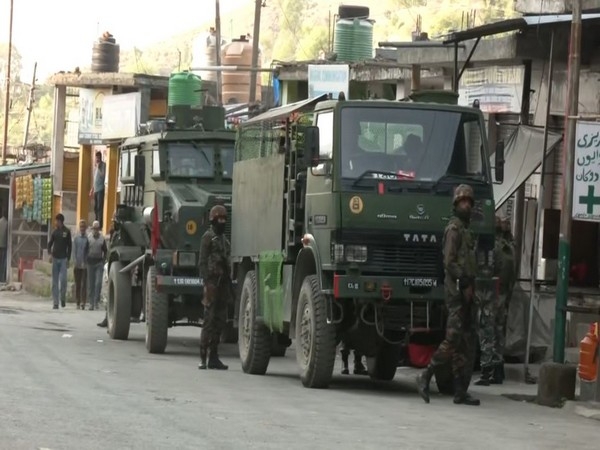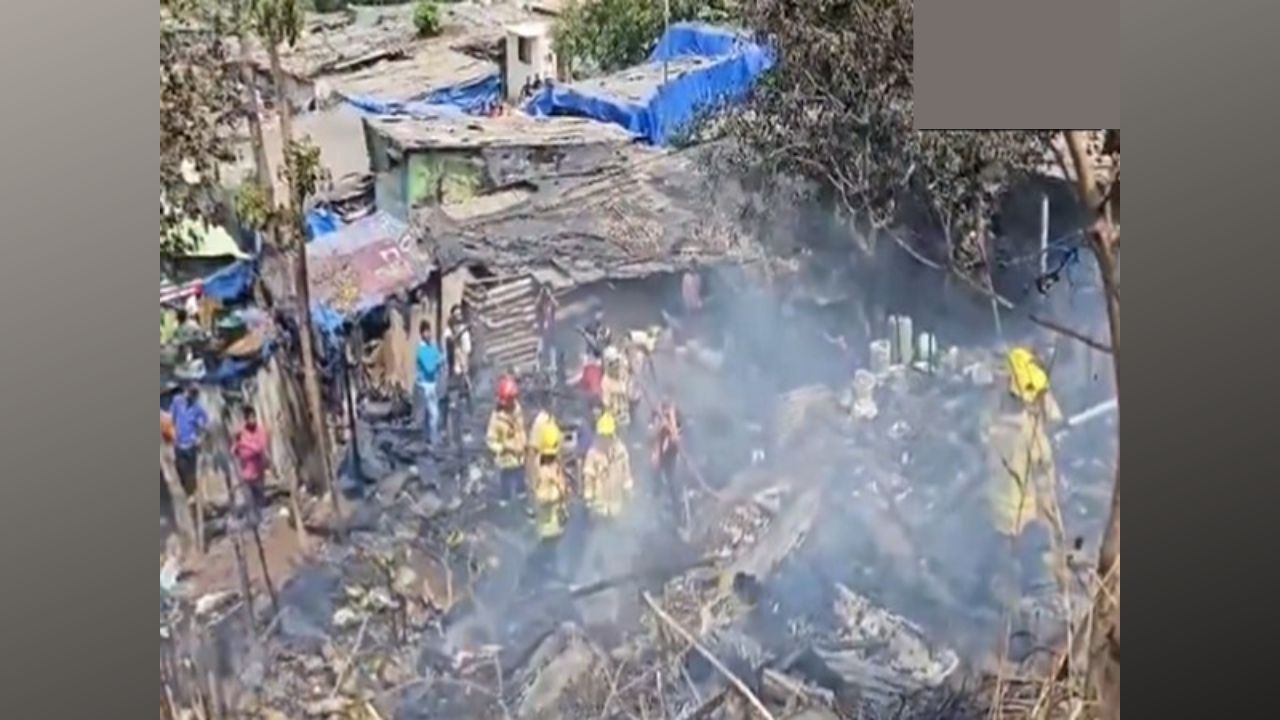Now that Trudeau is back home, will Indian media & netas realise how they hurt Sikhs?
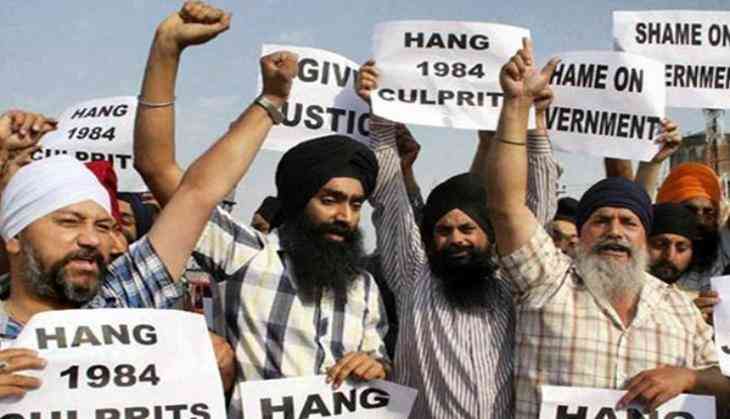
In India, majoritarian hatred against Muslims follows a predicable pattern - it involves projecting the community as a civilisational enemy and the ultimate "other". The majoritarian bias against Sikhs is different. It essentially has two elements: First, the complete denial of Sikhs' separate identity as a religious community - by labelling it as "almost Hindu" or patronisingly hailing it as "the sword arm of Hinduism". Second, the demonisation of Sikhs who don't follow this majoritarian script, as "Khalistanis".
While the hatred against Muslims overwhelmingly comes from the Hindutva forces, the majoritarian bias against Sikhs can be found in the right wing as well as among so-called liberals. After the troubled 1980s and early 1990s this anti-Sikh sentiment has never been this evident as it was in the last ten days surrounding the visit of Canadian Prime Minister Justin Trudeau.
The bias was visible right from the level of the Narendra Modi regime and a section of the Punjab government to the "liberals" in the English media. While the Modi government gave a "cold-shoulder" to Trudeau over his regime's alleged support to Khalistani militants, the media spared no opportunity to slam the Canadian prime minister and raise the Khalistan bogey. The result is a complete rupture in the narrative of the Indian elite on one hand and the Sikh community on the other.
Anti-Sikh bias
The row began even before Trudeau arrived in India. There was speculation that he would not meet Punjab Chief Minister Captain Amarinder Singh as the latter had refused to meet Canadian defence minister Harjit Singh Sajjan during his visit to India last year. Captain had even gone to the extent of accusing Sajjan of being pro-separatist.
Shekhar Gupta, the founder of The Print, went to the extent of suggesting that Prime Minister Narendra Modi should scrap Trudeau's visit altogether. Just one day before Trudeau's arrival, Gupta tweeted:
If Trudeau wants to avoid meeting @capt_amarinder because he questioned Canadian Sikh ministers’ radical “links” it’s a 1st rate diplomatic rebuff. Modi Govt shd bury politics, take a nationalist view & cancel his visit https://t.co/WfLsNegMsE
— Shekhar Gupta (@ShekharGupta) February 17, 2018
While Modi thankfully didn't take Gupta's advice, the PM did depart from his own practice of going to receive world leaders. Forget receiving Trudeau, Modi didn't even post a welcome Tweet.
Almost on cue, the pro-BJP TV channels went on a nationalist frenzy, almost projecting Trudeau as being nothing less than a national enemy. What was worse is that the hostility towards the Canadian PM soon degenerated into hostility against Sikhs in general
A Hindi news channel said, "Nahin raas aaya Bharat ko Trudeau ka Sikh prem" (India disapproves of Trudeau's love for Sikhs), sending the message that Canada's pro-Sikh approach is against India's national interests.
Both English and Hindi channels portrayed Canadian Sikhs across the board as being pro-Khalistan and there were clear attempts to drive a wedge between Indian and diaspora Sikhs.
Gupta struck again with an article, titled 'Trudeau has been as wrong about Sikhs as Pakistan’s ISI & our own AAP' making a rather absurd comparison between Pakistan's intelligence agency, the Canadian premier and the Aam Aadmi Party, which is in power in Delhi and the main Opposition party in Punjab.
Gupta toned down a bit a day later and wrote another piece explaining why he compared a mainstream Indian political party and the Canadian PM to Pakistan's ISI.
In this piece, Gupta made an assertion that lies at the root of why India's elite appears to get it wrong on Sikhs.
"In so many ways, Sikhs (in Punjab) are as Hindu as Hindus," Gupta wrote, indicating that his understanding of the Sikhs is no different from the Hindu right wing, which terms the community as "Keshdhari Hindus".
Gupta faced flak even before Trudeau's visit, for a story in The Print on Khalistanis allegedly operating from Canadian soil. The story said that Trudeau's minister Amarjeet Sohi was arrested in India under the Terrorist and Disruptive Activities (Prevention) Act (TADA) and insinuated that he is a Khalistan supporter.
The story was later contested by journalist and writer Amandeep Sandhu, who wrote that Sohi was actually a communist and was arrested in Bihar as a suspected Naxal just because he had a book with the poetry of Punjabi poet Paash.
But Gupta wasn't the only so-called liberal from the English media whose skewed view of Sikhs became apparent during Trudeau's visit.
Senior journalist Barkha Dutt wrote an article in Washington Post, in which she urged Trudeau to leave "the terrorists and designer kurtas behind" the next time he comes to India.
In her article, Dutt quoted only pro-establishment figures - right-wing academic Vivek Dehejia, former Indian diplomat Vishnu Prakash and Punjab CM Captain Amarinder Singh's advisor Raveen Thukral. She did not quote a single Sikh, either from Punjab or Canada, in her entire piece. Given the fact that Sikhs were in the middle of the entire controversy, it is strange that Dutt didn't think it necessary to include a single Sikh voice.
In the absence of any genuine engagement with community, the media has been passing off silly stereotypes as insights on Sikhs and Punjabis.
For instance, Gupta writes, "The dominant motifs of Punjab are the turban, bhangra, balle-balle and the Golden Temple".
Another senior journalist Rajdeep Sardesai asked a Amritdhari Sikh MP from Canada about "butter chicken" not realising that Amirtdhari (Baptised) Sikhs are often vegetarian, such as the lawmaker being questioned.
Then there was Nistula Hebbar from The Hindu, who made fun of Trudeau for volunteering at the langar in Darbar Sahib. Many Sikhs found her jibe in bad taste as working at the langar is considered an extremely pious act.
Yet another English news anchor cracked jokes that Justin Trudeau is so pro-Sikh that he should be called Jaswinder Trudeau. Not very different from the Hindutva brigade's Mullah Mulayam barb against Samajwadi Party leader Mulayam Singh Yadav for being pro-Muslim.
The media's ignorance about Sikhs was on full display over the past two weeks. It would have continued for a few more days had the death of film actor Sridevi not given the media a chance to plunge to newer lows.
Why we love to hate Trudeau
Coming back to Trudeau, what is it it about the Canadian prime minister that irks our elite? It can't just be his alleged support to radical Sikh elements. If that is the case, then every party in Punjab should be treated with similar hostility as all of them have done business with radicals at some point of time.
If Trudeau has allegedly attended functions organised by Khalistanis, even Captain attended a gathering at Dixie Gurudwara with Khalistan Zindabad written in the background. He also referred to Jagtar Singh Hawara, conspirator in the assassination of former CM Beant Singh, as a "gentleman".
According to reports, the BJP, under the initiative of general secretary Ram Madhav, reached out to radical Sikhs in Canada in the run-up to the Assembly elections in Punjab.
Then of course, there is the case of Jaspal Atwal, whom the media described as a "terrorist" who was about to crash Trudeau's dinner in Delhi. Eventually, it turned out that Atwal had completed his sentence in Canada and was in fact being wooed by the Indian establishment, which also removed his name from its blacklist. Atwal had not only visited India before, he is reported to have even met government officials.
The real grudge against Trudeau appears to be what the Hindi channel wrote: his "Sikh prem". It hurts our majoritarian consciousness to see that a community which has been patronisingly treated as a the “younger brother of Hinduism” and the “sword arm of India”, is being treated more equally in another country.
It irritates us to see a leader belonging to another culture going out of his way - from wearing kurta pajama to doing bhangra - just to woo a community we have taken for granted for so many years. This is why we make fun of the way he dresses, the way he dances and even the way he volunteers at the langar.
The hatred for Trudeau was, in many ways, a product of the widespread bias against Sikhs in India's political elite.
According to British journalist Sunny Hundal, "What really worries the Indian government is the prospect of Sikhs in Britain, Canada and the US getting into positions of power and challenging the abuse of Sikh civil rights in India".
"Among Indian elites there is palpable concern that Western foreign policy towards India will increasingly be shaped by Sikhs willing to challenge its interests. Hence the alarmist talk about Sikh separatism," he wrote in The Independent.
In an interview to Scroll.in, sociology professor from Guru Nanak Dev University, Paramjit Singh Judge says, "There is an emerging widespread view in Punjab that the Modi government treated Trudeau this way because he is seen as close to Sikhs."
Jaspreet Bal, who is in the board of directors of the Sikh Feminist Research Institute in Toronto, slams the Indian media for "painting Sikhs as terrorists" and indulging in "lazy journalism".
"The media coverage this past week, which has rushed to reclaim that radicalism is flourishing in Canada, has not paused to make the distinctions that Sikhs are not terrorists. Asking for basic rights, speaking out about human rights abuses and contemplating a day when your people are not discriminated against does not make you an extremist," she wrote in Washington Post.
Evocatively describing the viewpoint of Canadian Sikhs, she wrote, "despite baseless claims to the contrary, Sikhs have not been radicalised by their trauma. Rather, they have been strengthened by it. As a generation raised in the aftermath of the 1984 genocide is now working as educators, activists, artists, homemakers and laborers, we have used our experience to transform the Canadian landscape. We have taken our parents’ fight for justice and used it to become engaged in politics. We have taken the stories whispered from our widowed grandmothers’ lips and turned them into poetry".
Indian Sikhs speak out
It isn't just diaspora Sikhs like Hundal and Bal, but even Indian Sikhs spoke out against the Modi government's treatment of Trudeau as well as the media's biased coverage.
Except for the BJP and Captain Amarinder Singh, every political party in Punjab has criticised Modi for his cold shoulder to Trudeau. Here are tweets by Leader of the Opposition Sukhpal Singh Khaira of AAP and senior Congress leader Partap Singh Bajwa, which are not very different from the criticism of diaspora Sikhs.
Unfortunate to see lack of respect to Canadian Pm Trudeau by @narendramodi,we Punjabi’s n Sikhs feel deeply hurt as Canada has done us proud by giving wings to our social,political n religious aspirations besides freedom as human beings-khaira @News18Punjab @AAPPunjab @ZeePunjab
— Sukhpal Singh Khaira (@SukhpalKhaira) February 21, 2018
There are over one million Indian origin people living in Canada.When PM Modi can go personally to receive US President, UAE Crown Prince & Israeli PM he could have atleast sent a senior minister to receive his Canadian counterpart instead of a bureaucrat.
— Partap Singh Bajwa (@Partap_Sbajwa) February 18, 2018
Another Congress leader Navjot Singh Sidhu, who is also Punjab's Tourism and Culture Minister, praised Trudeau and said that he was much better than Modi when it came to respecting Sikhs.
Shiromani Akali Dal leader Manjeet Singh GK went to the extent of saying that "the Modi government, intelligence agencies, Captain Amarinder Singh and the media conspired to sabotage Trudeau's visit".
Reacting specifically to the controversy surrounding Jaspal Atwal, GK let the cat out of the bag by disclosing that Atwal was being courted by the Union government and he had close links with BJP leader Nalin Kohli.
A group of eminent Sikh intellectuals gathered in Chandigarh on 24 February issued a statement saying that the Trudeau episode had "exposed the hypocrisy of the Indian government".
They said that the government "remained stuck on its agenda of a Hindu Rashtra and deliberately ignored the achievements of Canadian Sikhs".
They further warned the government that its approach will further alienate SIkhs. They also attacked the media for focussing on "superfluous issues of the 1980s".
Film actor and former AAP leader Gul Panag also slammed the media for raising keeping the Khalistan issue alive, even though it has no support in Punjab.
Any journalist worth his salt knows there's is nothing to the Khalistan movement in Punjab anymore. And paying heed to a few irrelevant, anachronistic lunatics, isn't something any political party or the media should be doing.
— Gul Panag (@GulPanag) February 25, 2018
The issue is being deliberately, kept alive for propaganda value. As a tool to discredit people . And a stick to beat any dissenting Sikhs with ( Eg. prove to us your NOT a Khalistani ). The media is helping by default. Or design.
— Gul Panag (@GulPanag) February 25, 2018
Several Sikhs who are active on social media voiced the same opinion.
Indian TV channels still ignoring Trudeau and only barking about Modi sending strong message against Khalistanis.
— NoToSilence (@akdwaaz) February 23, 2018
Communal thugs
Thank you @JustinTrudeau for visiting India.
— Jas Oberoi (@iJasOberoi) February 23, 2018
Leaving everything aside, you helped us uncover Sikh-haters amongst the so called ‘Liberals’ of India media.
The top award goes to @ShekharGupta & @ChitleenKSethi. Hundreds of others get the consolation prize.
Punjab based human rights lawyer Guneet Kaur on Trudeau visit, hate against Sikhs, bias against minorities and denial of justice in India pic.twitter.com/RxXJYXWsCb
— NoToSilence (@akdwaaz) February 25, 2018
The mainstream media and the Indian elite in general seem to have misjudged Sikhs on several counts.
First, they underestimate the close ties between Sikhs in Punjab and the Sikh diaspora.
Second, they have wrongly labelled politically conscious diaspora Sikhs demanding justice for the victims of the 1984 pogrom and encounter killings, as “Khalistani”.
Third, they ignore the extent to which Sikhs are upset at the rise of Hindu communalism ever since Modi came to power in 2014. As Prof Judge points out, the homogenising mission of Hindutva can alienate Sikhs.
Fourth, they fail to understand that Sikhism is not an offshoot of Hinduism. Nor is it an exclusively India-based religion any longer. It is a transnational community that has made its mark in several countries across the world and whose holy places (Punyabhoomi in Hindutva parlance) lie not just in India but also in Pakistan.
It is a community that is driven by the principle of Sarbat Da Bhala (blessings for everyone) and must not be viewed from the restrictive prism of Indian national interest or stereotypes like balle balle and Butter Chicken.
First published: 28 February 2018, 20:21 IST


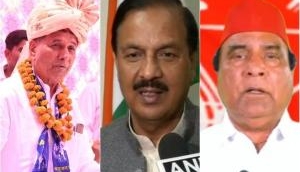
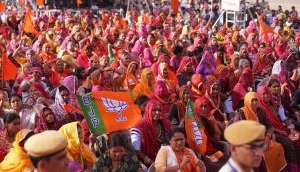

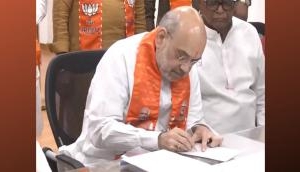

![BJP's Kapil Mishra recreates Shankar Mahadevan’s ‘Breathless’ song to highlight Delhi pollution [WATCH] BJP's Kapil Mishra recreates Shankar Mahadevan’s ‘Breathless’ song to highlight Delhi pollution [WATCH]](http://images.catchnews.com/upload/2022/11/03/kapil-mishra_240884_300x172.png)

![Anupam Kher shares pictures of his toned body on 67th birthday [MUST SEE] Anupam Kher shares pictures of his toned body on 67th birthday [MUST SEE]](http://images.catchnews.com/upload/2022/03/07/Anupam_kher_231145_300x172.jpg)


